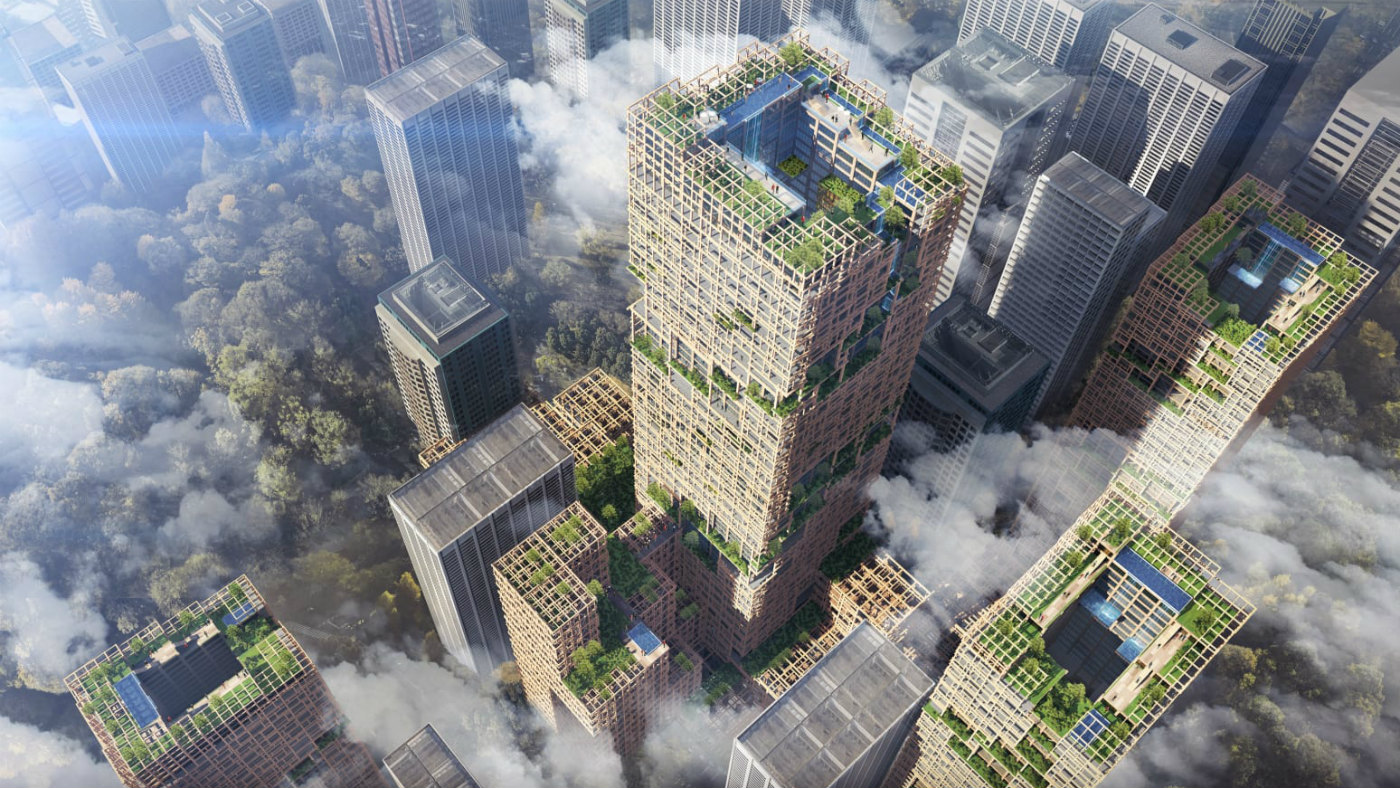Tokyo to build world's tallest wooden skyscraper
Nearly 1,200ft-tall structure to continue Japanese trend for building with timber

A free daily email with the biggest news stories of the day – and the best features from TheWeek.com
You are now subscribed
Your newsletter sign-up was successful
The world’s tallest wooden skyscraper is to be built in Tokyo.
Japanese company Sumitomo Forestry says its 1,148-feet-tall (350m) timber tower will be completed in 2041, to mark the 350th anniversary of the business that year. The W350 tower will cost an estimated 600 billion yen (£4.02 billion) to build, around “twice the amount of a conventional high-rise building constructed with current technology,” says CNBC.
However, the company believes that those costs could come down as timber becomes a more frequently used material: “Going forward, the economic feasibility of the project will be enhanced by reducing costs through technological development.”
The Week
Escape your echo chamber. Get the facts behind the news, plus analysis from multiple perspectives.

Sign up for The Week's Free Newsletters
From our morning news briefing to a weekly Good News Newsletter, get the best of The Week delivered directly to your inbox.
From our morning news briefing to a weekly Good News Newsletter, get the best of The Week delivered directly to your inbox.
According to the company, green balconies will be built around the skyscraper's exterior, connecting the building to its environment.
“The aim is to create environmentally-friendly and timber-utilising cities where (cities) become forests through increased use of wooden architecture for high-rise buildings,” the company said in a press release.
The push by the Japanese government stems from the vast amount of wood the country has available. About 25 million hectares of Japan is forest, covering some 67% of the country. This figure is more than twice the global average.
The Japanese government is therefore “trying to encourage more developers to use wood. In 2010, it passed the Promotion of Use of Wood in Public Buildings Act, which required all government buildings up to three stories high to be constructed with wood, or to utilise wood,” says CNN.
A free daily email with the biggest news stories of the day – and the best features from TheWeek.com
About 25 million hectares are forested in the country, covering some 67% of the country. This figure is more than twice as large as the world's average 29% forest cover of land.
Wooden skyscrapers are not unique to Japan. They can be found across the globe, “from an 18-storey office building in Minneapolis made from timber to a 53m-high block of student flats in Vancouver that currently holds the title of world's tallest wooden skyscraper,” says the BBC.
New types of ultra-strong timber are partly driving the trend for wooden buildings. "There's a whole bunch of new materials made out of wood that are structurally able to build big buildings," says Dr Michael Ramage, of the Centre for Natural Material Innovation at Cambridge University.
Fire-resistance is obviously one issue but cross-laminated timber (CLT), a building material that is becoming more common, “is designed to be fire resistant and unlike steel, remains more structurally stable when subjected to high temperatures,” adds the BBC.
“There is a huge perception problem,” says Ramage. “Timber doesn't burn in the way the public imagines. The great fires of London and Chicago were both sparked by very small pieces of wood. Very big pieces of wood are quite hard to set on fire - they aren't kindling material.”
However, “it's a lot more expensive to build a wooden skyscraper, so chances are you're not going to see them pop up across your neighbourhood anytime soon,” the BBC notes.
-
 Why is the Trump administration talking about ‘Western civilization’?
Why is the Trump administration talking about ‘Western civilization’?Talking Points Rubio says Europe, US bonded by religion and ancestry
-
 Quentin Deranque: a student’s death energizes the French far right
Quentin Deranque: a student’s death energizes the French far rightIN THE SPOTLIGHT Reactions to the violent killing of an ultra-conservative activist offer a glimpse at the culture wars roiling France ahead of next year’s elections.
-
 Secured vs. unsecured loans: how do they differ and which is better?
Secured vs. unsecured loans: how do they differ and which is better?the explainer They are distinguished by the level of risk and the inclusion of collateral
-
 Epstein files topple law CEO, roil UK government
Epstein files topple law CEO, roil UK governmentSpeed Read Peter Mandelson, Britain’s former ambassador to the US, is caught up in the scandal
-
 Iran and US prepare to meet after skirmishes
Iran and US prepare to meet after skirmishesSpeed Read The incident comes amid heightened tensions in the Middle East
-
 Israel retrieves final hostage’s body from Gaza
Israel retrieves final hostage’s body from GazaSpeed Read The 24-year-old police officer was killed during the initial Hamas attack
-
 China’s Xi targets top general in growing purge
China’s Xi targets top general in growing purgeSpeed Read Zhang Youxia is being investigated over ‘grave violations’ of the law
-
 Panama and Canada are negotiating over a crucial copper mine
Panama and Canada are negotiating over a crucial copper mineIn the Spotlight Panama is set to make a final decision on the mine this summer
-
 Why Greenland’s natural resources are nearly impossible to mine
Why Greenland’s natural resources are nearly impossible to mineThe Explainer The country’s natural landscape makes the task extremely difficult
-
 Iran cuts internet as protests escalate
Iran cuts internet as protests escalateSpeed Reada Government buildings across the country have been set on fire
-
 US nabs ‘shadow’ tanker claimed by Russia
US nabs ‘shadow’ tanker claimed by RussiaSpeed Read The ship was one of two vessels seized by the US military